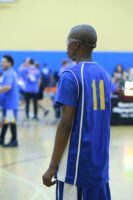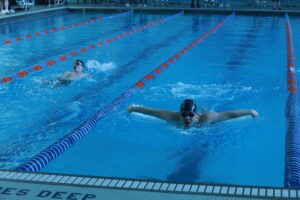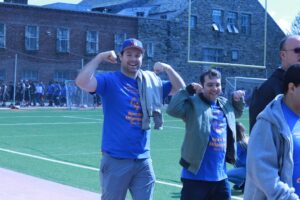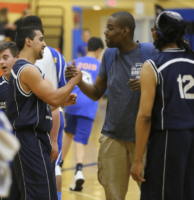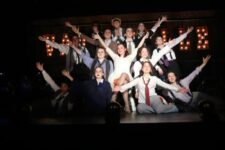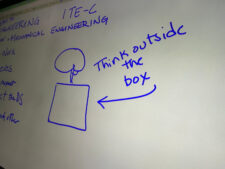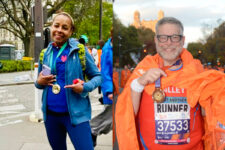“Special Olympics is a social justice organization,” says Karen Drohan, Fieldston Upper History Teacher and faculty adviser to the Special Olympics committee. “It is an incredibly meaningful event to so many. It’s important that everyone understands that.”
This spring, with the help of over 100 student volunteers, Ethical Culture Fieldston School will host the annual Special Olympics swimming and basketball invitational on the Fieldston campus. At this event, adults with intellectual disabilities (ID) from across New York City will set out to qualify for the state-wide Special Olympics competition.
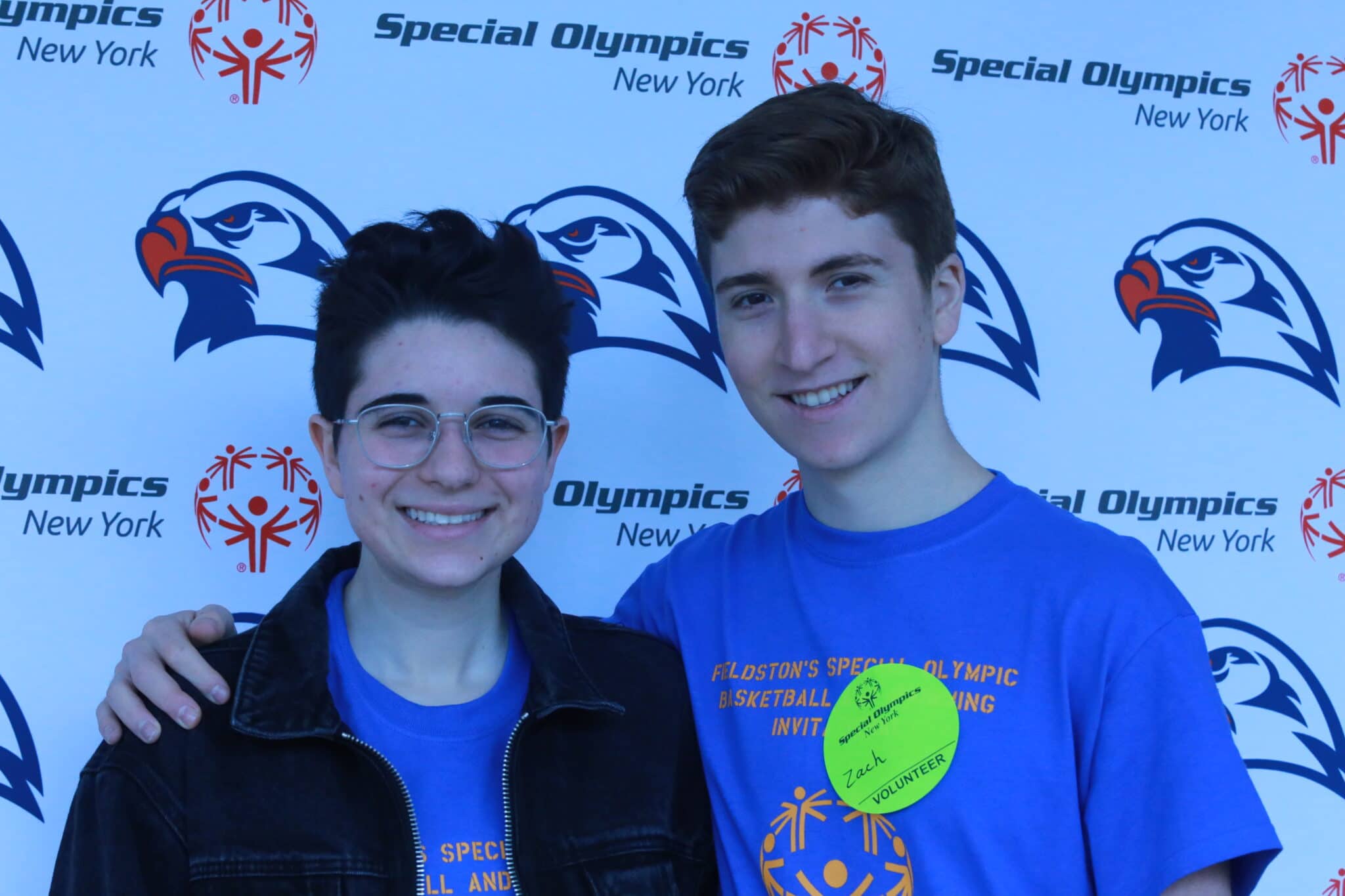
At ECFS, service learning and an ongoing commitment to Diversity, Equity, and Inclusion (DEI) are hallmarks of everyday culture. Students, faculty, staff, and leadership alike are continually engaged in activism within the ECFS community and beyond. This work begins as early as Kindergarten when students are introduced to the Ethics curriculum. Through engaging lessons, students learn about each other as individuals and as members of the wider school community. At Fieldston Middle, this curriculum builds as students learn to think critically about the world around them. Once students reach Fieldston Upper, they choose between electives in philosophy, psychology, comparative religion, social justice education, and social and political issues.
Within the Fieldston Upper Ethics curriculum lives the Community Service Learning (CSL) program. Many service leadership opportunities within and outside the School encourage students to engage with the greater community, and in doing so, students are challenged to look at issues through multiple ethical lenses. This formalized program simultaneously invests in students’ social, emotional, moral, and academic growth.
Through sport, health, education, and community building, Special Olympics is resisting the inactivity, isolation, and injustice that people with ID face every single day.
Eunice Kennedy Shriver first organized the Special Olympics in 1968, in tandem with a national conversation around discrimination. Shriver believed that as human beings occupying our world, we must work together to resist the ills of injustice; she spent many years emphasizing that, collectively, we must work to reduce the harmful effects of stigma, othering, and exclusion. Today, Special Olympics continues to be a “movement of restless dissatisfaction with the status quo.”
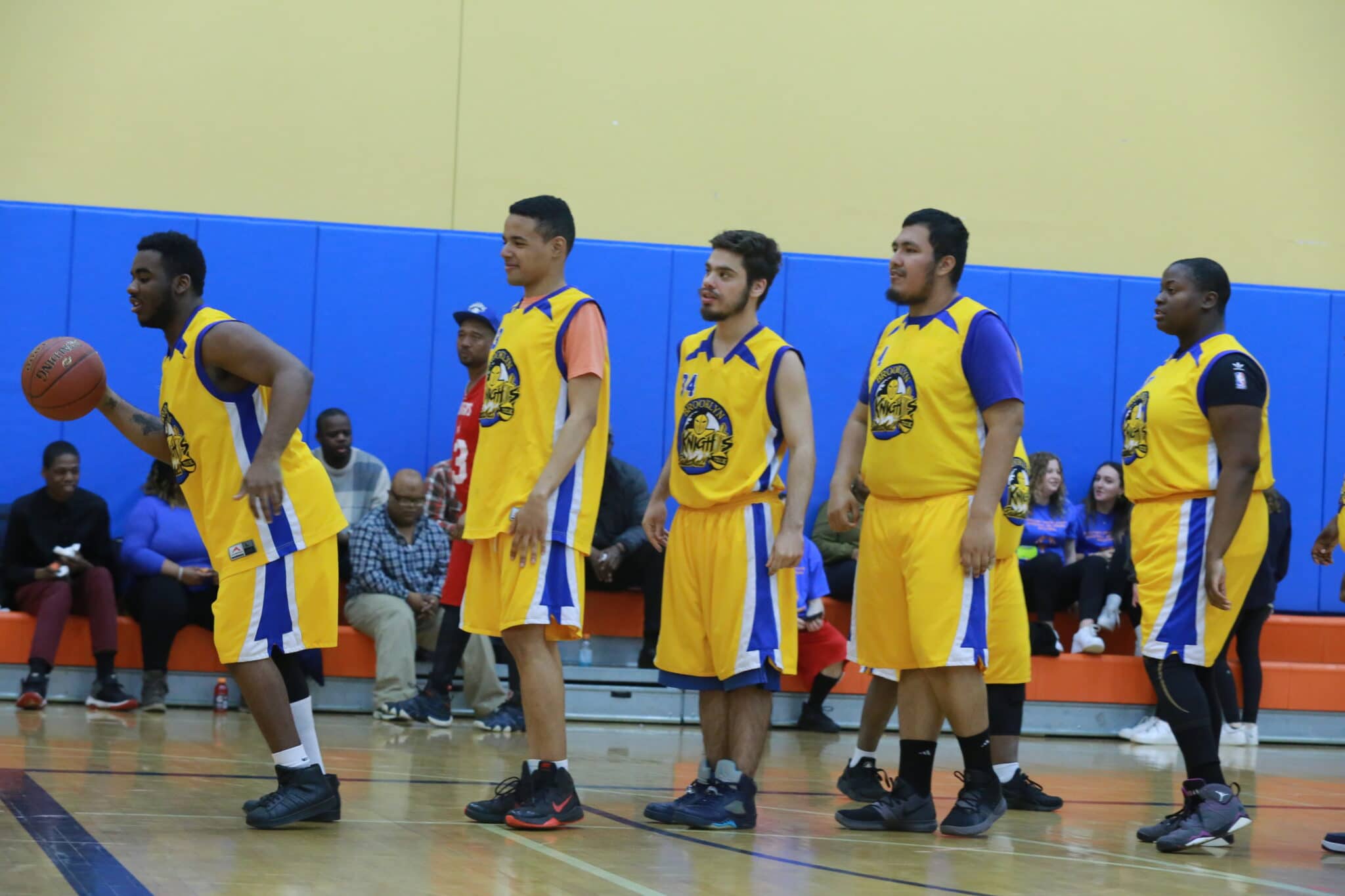
While Drohan was familiar with the work of Special Olympics, it wasn’t until her youngest daughter participated in elementary school-based games that she really understood the value. “My daughter has significant learning disabilities and mild developmental delays,” explains Drohan. “When she was in 4th Grade she was invited to participate in school-based games in track and soccer for which she won a number of ribbons and medals.”
Two years later, when Drohan’s daughter was in 6th Grade, she came home in tears about something that had happened in school. She wouldn’t explain what had made her so upset, and went into her room and cried. After 20 minutes or so, Drohan explained, “she came out wearing her Special Olympics medals and said, ‘I don’t know what I’m worried about, I’m a champion.’” At that moment, when she saw how proud her daughter was of her medals, Drohan began to champion the mission of Special Olympics.
“It is an organization that offers a path to self-esteem; it’s a path to success; it’s a path to social relationships for people who may not have a traditional path,” says Drohan. Drohan and her daughter recognized that Special Olympics notices people with ID, and sees the inherent value in all people — regardless of ability.
Fieldston first hosted the Special Olympics basketball and swimming invitational during the 2009–2010 academic year. When Drohan began teaching at Fieldston Upper in 2015, the program was certainly a priority, but the School was in need of a new faculty advisor to take ownership of the event. When the principal put out a call for someone to take over, Drohan was eager to step up. Since her first year, Drohan has expanded the program to involve over 100 student volunteers and five student committee chairs.
“In 2020 and 2021, we were unable to host games due to COVID-19, so in some ways this year feels like we are doing it for the first time,” says Drohan. “The students are amazing and have really stepped into important leadership roles. I am excited that we will have a new generation of Fieldston students committed to participating in this program.”
At a recent Fieldston Upper assembly, students from the Special Olympics committee shared their personal attachment to the organization. One student, Jess B. ’22, created a video compilation of her aunt — a Special Olympics athlete — expressing enthusiasm about the upcoming games: “We play bocce. I am very excited because I love playing on a team!” Her face beams with a beautiful smile.
Drohan continually seeks out opportunities to engage with students about inclusivity and the harmful effects of ableism. During a recent Alternative Learning Period (ALP), Drohan hosted a viewing of the 2020 documentary “Crip Camp.” The “Crip Camp” referenced in the title is a summer camp for teens with ID, which inspired a group of its alumni to join the disability rights movement to advocate for historic legislative changes. After watching the documentary, students listened to and engaged with a guest speaker — an advocate for persons with disabilities — Matt Castelluccio.
Castelluccio described that for much of his life, he hadn’t interacted much with people with disabilities. He felt awkward and ashamed that he didn’t understand how to speak to a person who seemed — at least on the outside — different than himself.
In May of 2003, Castelluccio was in a motorcycle accident that would change his life forever. After sustaining multiple serious injuries, he lost the function of both his arms and legs. “I remember feeling this overwhelming devastation and anger. At the same time, however, I was struck by this enormous amount of drive. I was determined to overcome these injuries and prove everyone wrong,” says Castelluccio. A major factor in Castelluccio’s shift in mindset, and eventually in his ability to regain function of both of his arms, was his involvement in adapted sports and Special Olympics.
“My wheelchair doesn’t make me any less of a person. If anything it gave me empowerment. It’s a badge of honor that I had overcome the most difficult thing I could’ve imagined in my life.” 61 million people in the United States have a form of disability. “Disability is a natural part of human existence. We’re all only able-bodied for so long. My goal in life is to educate people and break down the barriers that get in the way of an inclusive environment for all,” explains Castelluccio.
When Castelluccio was finished speaking, students were encouraged to ask questions or share their thoughts. One student, Kofi D. ’24, raised his hand to speak right away: “When you started speaking, I thought you were going to tell a sad story about how you got hurt in a terrible accident, but you completely changed my perspective. Instead, I am holding on to, and so inspired by the part of you that was able to overcome and work through that pain.”
“That’s my goal,” responds Castelluccio. “Look, I know that when you first see me, you are going to see my wheelchair. But by the time I am done speaking, I hope that you look at me and see the person I am. Everything outside of who I am at my core is beside the point.”
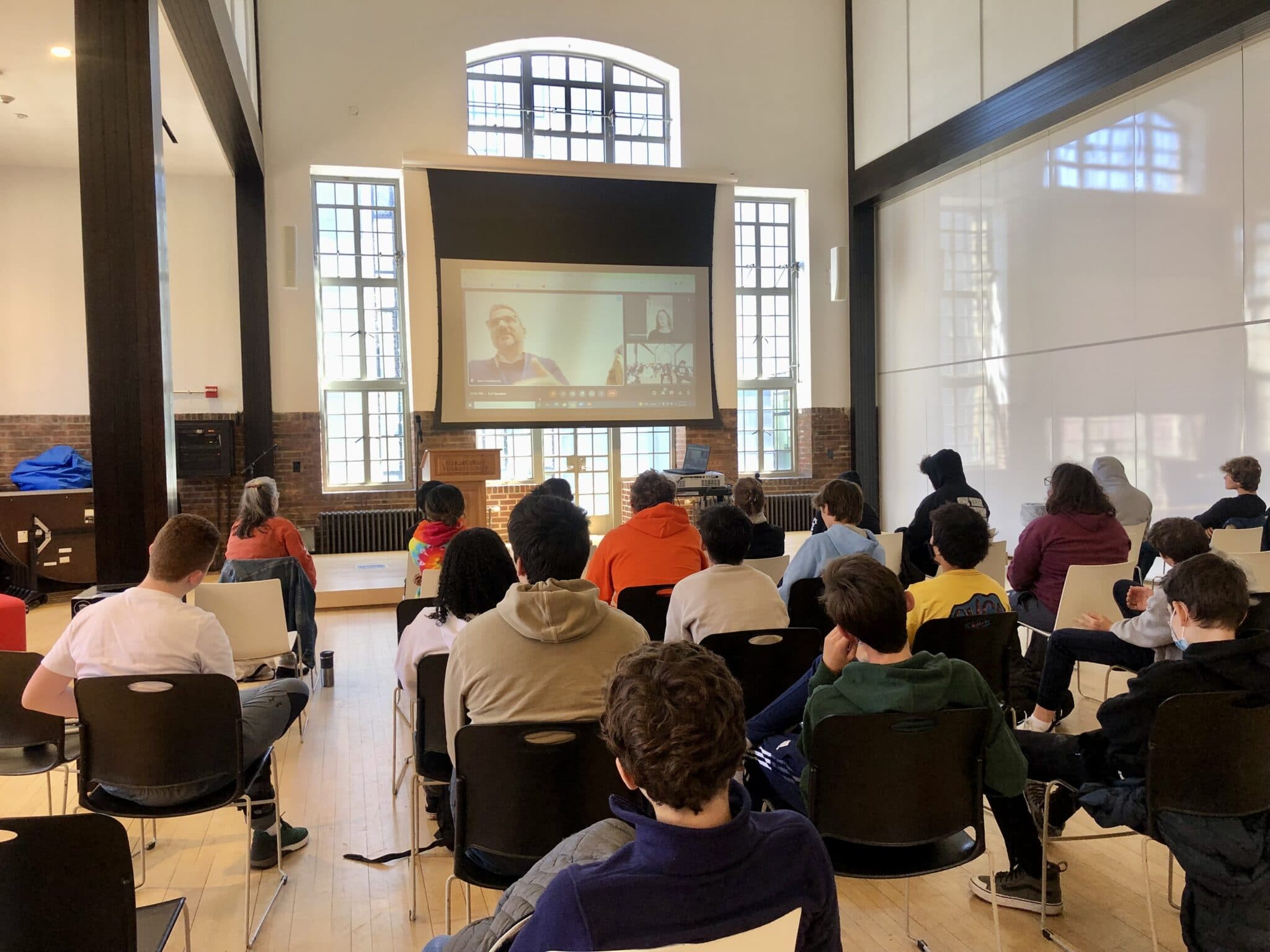
This year’s Special Olympics event will take place on Saturday 4/30, and will begin with the traditional opening ceremonies, during which students will march around the Fieldston Upper field with the Special Olympics athletes. After the opening ceremonies, students will break off into different roles to facilitate the event: team coach, timekeeper, and snack distributor, among many more.
And in staying true to the organization’s mission, before the games begin, athletes will take the Special Olympics sports pledge: “Let me win. But if I cannot win, let me be brave in the attempt.”
